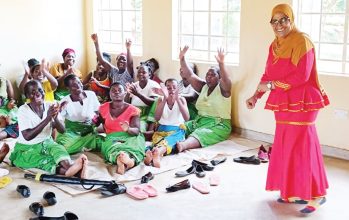Drug budget dwindles
Looking frustrated and depressed, Caroline Madeya, from Ndirande Township in Blantyre, walks lazily out of Queen Elizabeth Central Hospital (QECH) gates.
She was referred to the central hospital on Thursday after an illness, but she was sent back to buy a painkiller diclofenac from a pharmacy.

“How can I walk from Ndirande to here only to be told to buy drugs on my own?” she wondered, looking confused and unhappy.
Drug stock-out is not peculiar to QECH, but many health facilities in the country whose drug budget continues to drop.
In the current financial year, for instance, the drug budget has been allocated K19.9 billion, which is 9.3 percent of the total health sector budget of K330 billion, something that is below the K25 billion requirement as per the Drug Quantification Report.
On Wednesday, Gehazi Nyirenda also claimed he came back from Mzuzu Central Hospital with a prescription.
“I was told the facility does not have tramadol and I was instead given a prescription,” he said.
Emmie Chintanga from Machinga District found herself in predicaments like those of Nyirenda and Madeya.
While Enelles Tembo from Sorgin in Nsanje District faced a similar situation last week. She described the matter as worrisome, especially for people in the rural areas.
This scenario mirrors challenges of thousands of patients who are failing to access drugs in health facilities across the country.
Overall, K330 billion is 8.5 percent of the 2023/24 National Budget, which is below pledge government made in the Abuja Declaration.
According to the declaration, the Government of Malawi pledged 15 percent of the national budget to the health sector to reduce drug stock-outs and other challenges that plague the sector.
And according to budget documents we have analysed, allocation to the drug budget in proportion to the sector allocation has for the previous four financial years been dropping.
For instance, in the 2022/23 financial year, the drug budget was allocated K27.7 billion representing 9.8 percent of the sector budget which at K283.57 billion was 10 percent of the national budget.
On the other hand, in the 2021/22 financial year, the drug budget was allocated K20 billion representing 10.7 percent of the sector’s K187 billion budget which was 9.4 percent of the national budget.
And in the 2019/20 financial year, the drug budget was allocated K25.9 billion or 25.6 percent of the K101 billion sector budget which represented 9.4 percent of the national budget.
Players in the health sector have since described as disheartening the low allocations to the drug budget, which they fear will have serious consequences.
Society of Medical Doctors) spokesperson Dr Zaziwe Gunda said in an interview on Tuesday that the downward trend of both the health and drug budget has serious implications on the quality of health service delivery both in the district and central hospitals.
He said: “Decreasing the health and drug budget will not render the hospital managers and health workers efficient in discharging their duties but will also put the lives of the common people in the village in jeopardy.”
Gunda further said reducing the health and drug budget in the period when Malawians are going through myriads of infectious diseases and outbreaks like cholera, Covid-19 and Cyclone Freddy is not a prudent thing to do.
Further, He said the dwindling trend in the drug budgetary allocation will put a lot of Malawians at a disadvantage in regard to their health and we may end up losing productive Malawians because of inefficient health service delivery.
“We would like to plead with the government, donors, and other stakeholders in finding a long-lasting means of increasing funds going to the health sector and the drugs.
“Now that the budget has passed, we would like to ask the donors to commit their efforts in ensuring that healthcare provision is improved for the common man in the village,” said Gunda.
Similarly, Health and Rights Education Programme executive director Maziko Matemba in a separate interview on Tuesday expressed sadness over the low allocations to the drug budget.
“Looking at the numerous emergencies and challenges Malawi continues to face, the low allocations to the drug budget are a drawback in as far as health is concerned,” he said.
Matemba, who is also a health rights activist, said what is needed is for the government to rise up to the occasion and ensure that there is adequate funding for the health sector.
In its analysis of the 2022/23 National Budget, the Malawi Health Equity Network (Mhen) observes that the low allocation towards the sector in general in contrast to the Abuja Declaration signals a lack of government’s commitment to fulfilling the agreements under the same.
The analysis also states that such low funding will exert pressure on general health services as there will be division of little resources available.
Against such a background, Mhen has been advocating for an increase in the health sector’s budget by about K64 billion to allow for effective programme implementation and service delivery.
Reads part of the analysis: “The private sector must also consider financing the notable gaps in the health sector as CSR [corporate social responsibility].”





